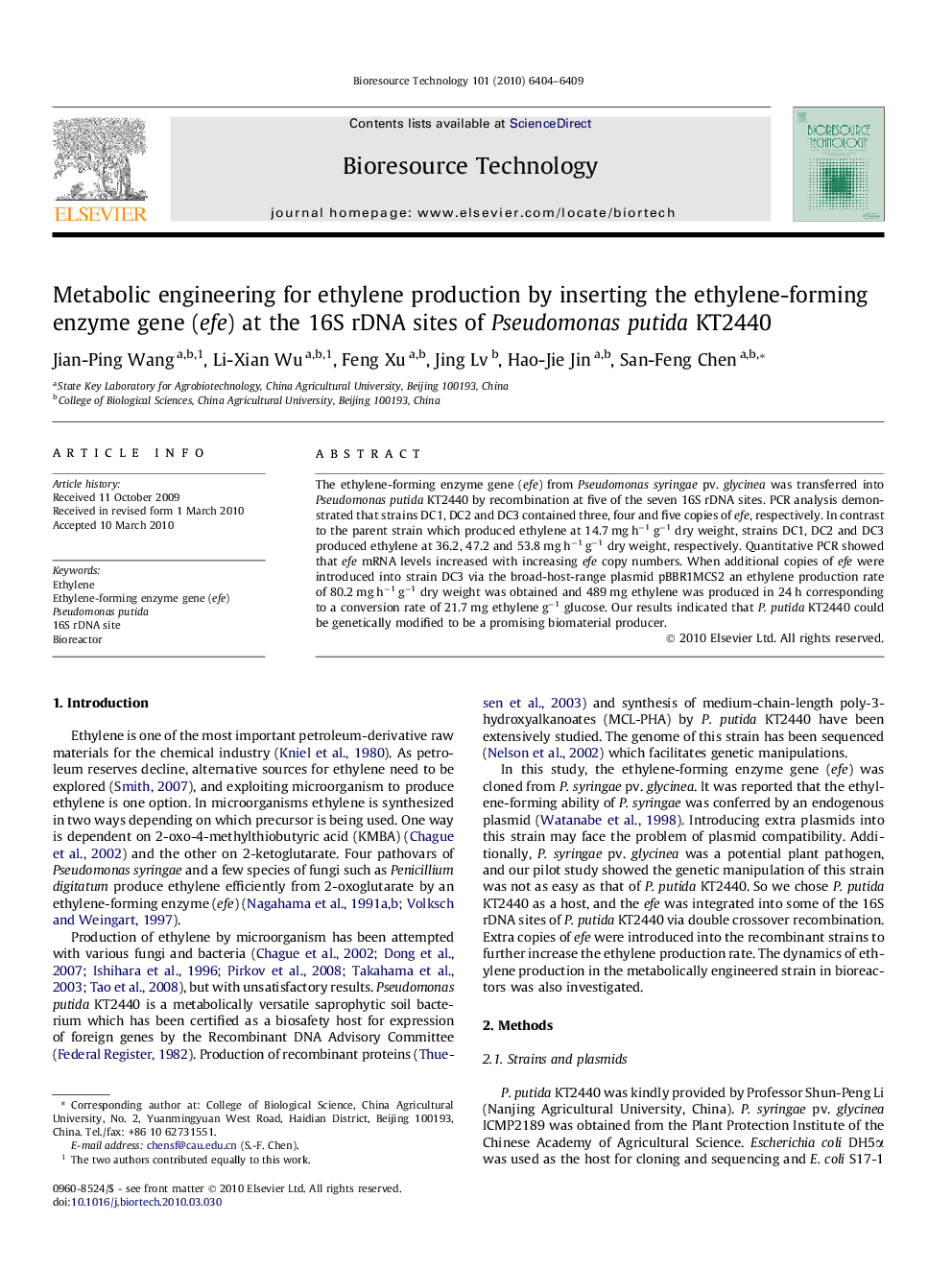| Article ID | Journal | Published Year | Pages | File Type |
|---|---|---|---|---|
| 683210 | Bioresource Technology | 2010 | 6 Pages |
The ethylene-forming enzyme gene (efe) from Pseudomonas syringae pv. glycinea was transferred into Pseudomonas putida KT2440 by recombination at five of the seven 16S rDNA sites. PCR analysis demonstrated that strains DC1, DC2 and DC3 contained three, four and five copies of efe, respectively. In contrast to the parent strain which produced ethylene at 14.7 mg h−1 g−1 dry weight, strains DC1, DC2 and DC3 produced ethylene at 36.2, 47.2 and 53.8 mg h−1 g−1 dry weight, respectively. Quantitative PCR showed that efe mRNA levels increased with increasing efe copy numbers. When additional copies of efe were introduced into strain DC3 via the broad-host-range plasmid pBBR1MCS2 an ethylene production rate of 80.2 mg h−1 g−1 dry weight was obtained and 489 mg ethylene was produced in 24 h corresponding to a conversion rate of 21.7 mg ethylene g−1 glucose. Our results indicated that P. putida KT2440 could be genetically modified to be a promising biomaterial producer.
